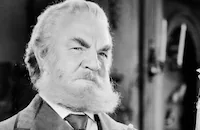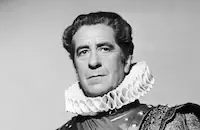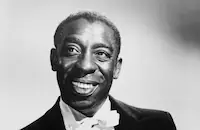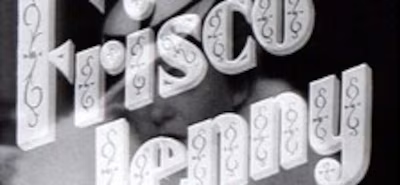Frisco Jenny

Brief Synopsis
Cast & Crew
William A. Wellman
Ruth Chatterton
Louis Calhern
Helen Jerome Eddy
Donald Cook
James Murray
Film Details
Technical Specs

Synopsis
Jenny Sandoval is pregnant and unmarried when the San Francisco earthquake of 1906 strikes, killing her father, Jim, and her lover, Dan McAllister. Alone, Jenny survives in the Chinese district, where her baby is born, by turning to prostitution. Local attorney Steve Dutton helps Jenny set up a brothel. At a party in his honor, Steve discovers that Ed Harris has cheated him in a crap game and in the ensuing struggle, fatally shoots Harris. Jenny, who is the only witness, calmly hides the gun, but detective Tom Ford charges her with the crime, and Steve arranges to place her son, Dan, with the wealthy Reynolds until the scandal is over. By the time Jenny is able to reclaim Dan, he believes that the foster home is his real home, so she leaves him behind and goes into the bootlegging business with Steve. Years pass and Dan wins the race for district attorney, unaware that Jenny aided him by framing his opponent. Ironically, his first act in office is to break up the vice ring controlled by Steve and Jenny. Steve, fearing arrest, threatens to expose Jenny's past. Determined to protect her child, she kills Steve, is prosecuted by her son, and sentenced to hang. Dan visits Jenny on death row, begging her to reveal her motive. Firm in her devotion, she takes her secret with her to her death.

Director

William A. Wellman
Cast

Ruth Chatterton

Louis Calhern
Helen Jerome Eddy

Donald Cook
James Murray
Hallam Cooley
Pat O'malley

Harold Huber
Robert E. O'connor
Willard Robertson
Frank Mcglynn Sr.

J. Carroll Naish

Noel Francis
Sam Godfrey
Franklin Parker
Buster Phelps

Berton Churchill
Edwin Maxwell

Robert Warwick
Harry Holman
Fritzi Ridgeway

Clarence Muse

Nella Walker

Gertrude Astor
Claudia Coleman
Crew
Wesley Anderson
Gerald Beaumont
Tommy Brannigan
Leo F. Forbstein
Dave Forrest
Ray Griffith
Robert Haas
Lillie Hayward
Sid Hickox
Joe Hommel
John Francis Larkin
Robert Lord
Wilson Mizner
James Morley
Orry-kelly

Film Details
Technical Specs

Articles
Frisco Jenny
Although most often associated with male-oriented films like the World War I aviation drama Wings (1927) and the gangster classic The Public Enemy (1931), Wellman had also carved a niche directing women, albeit in hard-edged films like Night Nurse (1931) and The Purchase Price (1932), both starring the young Barbara Stanwyck, and Safe in Hell (1931) with Dorothy Mackaill. It shouldn't have come as a surprise that Zanuck assigned him to Frisco Jenny, the tale of an enterprising woman orphaned by the San Francisco earthquake who becomes the city's top madam. The fact that the film was co-authored by his friend Wilson Mizner, a noted restaurateur and con artist who would be the subject of the Stephen Sondheim musical Bounce, should have made the project even more attractive to him.
Chatterton was also a logical choice for the film. The stage star, who had held out on going into the movies until she was 35, debuting opposite Emil Jannings in Sins of the Fathers (1928), had scored her greatest screen success in Madame X (1929), the story of a fallen woman who ends up being defended in a murder trial by the son she had given up years earlier. Frisco Jenny worked a reversal on the earlier film's plot, with Chatterton prosecuted by a district attorney who doesn't know she's his mother. Just to make the resemblance stronger, in both films she is on trial for killing the man who tried to expose her connection to the young man.
The only problem was Chatterton's reputation for fighting with directors. Far from an insecure starlet, she had come to the screen confident in her abilities as an actress and her sense of what made a good story (she would later become a successful novelist). When Zanuck introduced her as Wellman's new star, the director refused to work with her. Having heard of Wellman's reputation, Chatterton issued her own refusal. Zanuck had to threaten to destroy their careers to get them to work together.
At first, they kept their distance. Wellman worked on the script without consulting Chatterton, and let an assistant director handle her costume tests. When shooting started, they barely spoke to each other. After three days, however, she called a truce, claiming that up to that point it had been her most enjoyable filmmaking experience. He was happy to acquiesce, having realized what a good actress she was. In addition, she was married to George Brent, an actor he admired. As a result, Wellman and Chatterton became good friends, and she would later hail Frisco Jenny as her favorite film.
Brent originally had been scheduled to co-star with his wife in Frisco Jenny, but Zanuck had pulled him out to join the cast of 42nd Street (1933). The married stars would team with Wellman the following year for Lilly Turner, which turned out to be one of Chatterton's most popular Warner Bros. films.
Frisco Jenny, however, wasn't a success. Critics and audiences were a little too aware of the film's similarities to Madame X, leading to mixed reviews and tepid box office. Although Wellman was praised for his staging of the San Francisco earthquake, a combination of footage from Warner's Old San Francisco (1927) and original material Wellman had shot, Mordaunt Hall of the New York Times complained that "the film does not live up to those scenes of destruction, terror and death." In particular, the timing of the quake, which hits just as Chatterton's on-screen father slaps her during a fight, made it seem that the disaster was God's punishment for smacking around one of the screen's top stars.
In recent years, Frisco Jenny has been among the pre-Code films rediscovered and re-evaluated thanks to theatrical revivals and cable television screenings. New fans have been impressed by Chatterton's depiction of a tough woman who takes charge of her own destiny long before women's liberation and Wellman's energetic direction and creative camera placement.
Director: William A. Wellman
Producer: Raymond Griffith
Screenplay: Wilson Mizner, Robert Lord
Based on a story by Gerald Beaumont, Lillie Hayward and John Francis Larkin
Cinematography: Sid Hickox
Art Direction: Robert M. Haas
Music: Cliff Hess
Principal Cast: Ruth Chatterton (Frisco Jenny), Donald Cook (Dan Reynolds), James Murray (Dan McAllister), Louis Calhern (Steve Dutton), Robert Warwick (Kelly), Harold Huber (Weaver), Helen Jerome Eddy (Amah), J. Carrol Naish (Harris), William A. Wellman (Reporter).
BW-71m.
by Frank Miller

Frisco Jenny
Quotes
Cellars of Chinatown. Yeah, I was there. So was he. It was there I gave him life. He gives me death.- Frisco Jenny Sandoval
Business was very gratifying this month.- Miss Tessie
Conventions always help.- Frisco Jenny Sandoval
Trivia
a newspaper reporter phoning in a scoop.
George Brent was originally cast opposite Ruth Chatterton but withdrew to star in 42nd Street (1933).
Notes
The film's pre-release title was Common Ground. According to Film Daily, George Brent was originally cast opposite Ruth Chatterton but was withdrawn in order to perform in 42nd Street. Warner Bros. production reports included in the file on the film in the AMPAS library note that the film was shot over twenty days for a total budget of $286,000.















